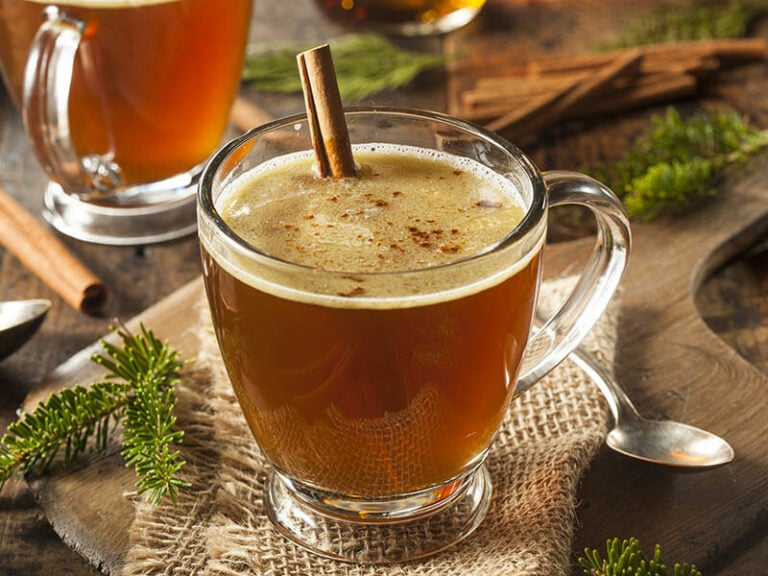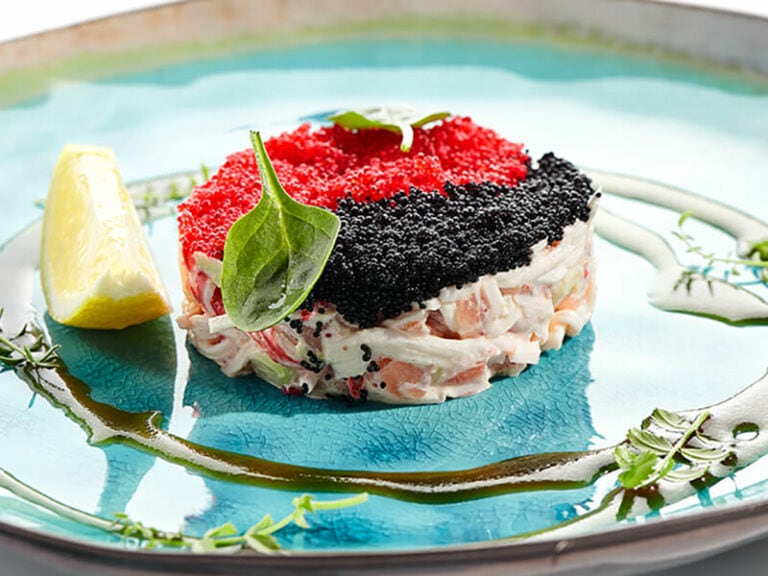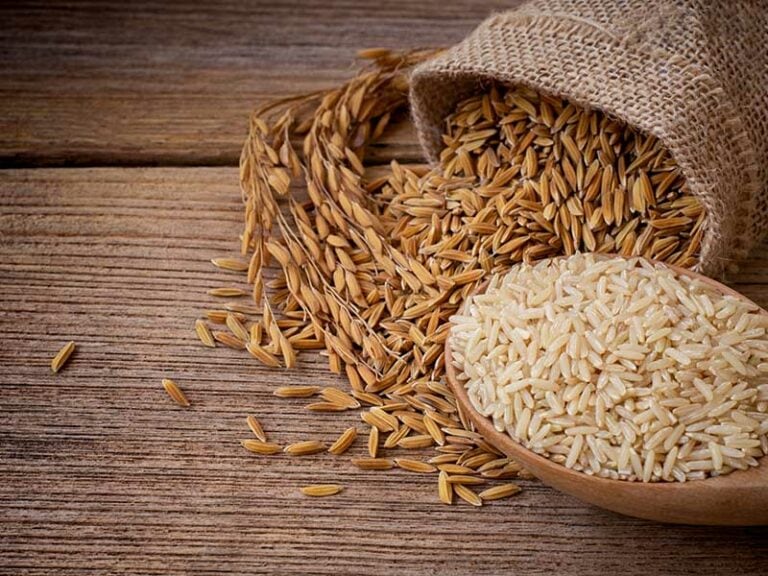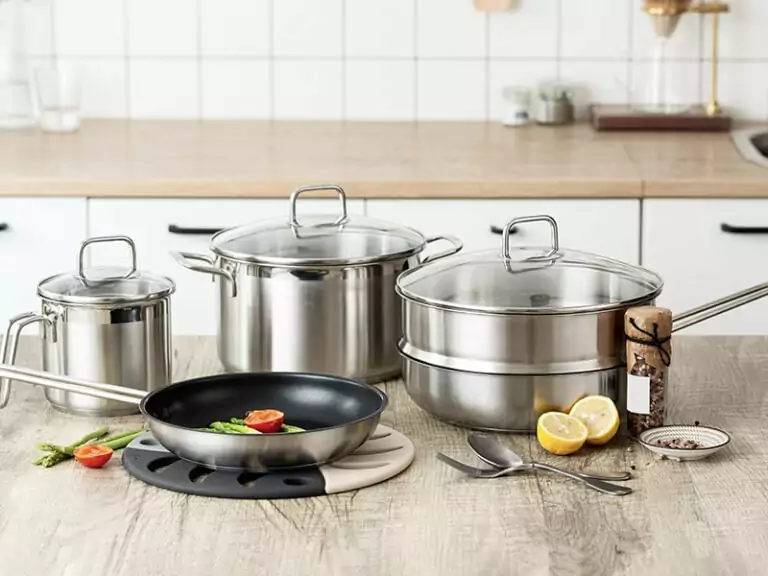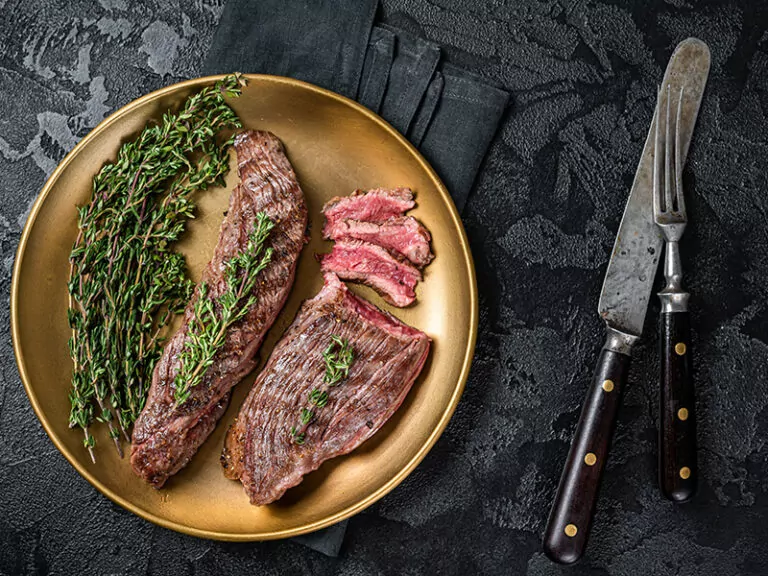Have you ever opened a newly-bought jar of pickles, then a sudden feeling of uncertainty caught you off guard and raised your concern: “Do pickles need to be refrigerated?”
Pickles are undoubtedly many people’s favorite side dish or appetizer, but not everyone is an expert at how to keep their beloved pickles intact.
Is your refrigerator supposed to be the only place where your jars of pickles hang out all the time? Surprisingly enough, the debate over this question has not been settled yet, even among experts.
In this article, I will save you from all the long and boring hours of internet search by supplying you with the most multifaceted and informative knowledge about pickles and the best ways to preserve them.
Without further ado, let’s dive into the multiverse of pickles and explore how your choice of storage can alter their reality and quality.
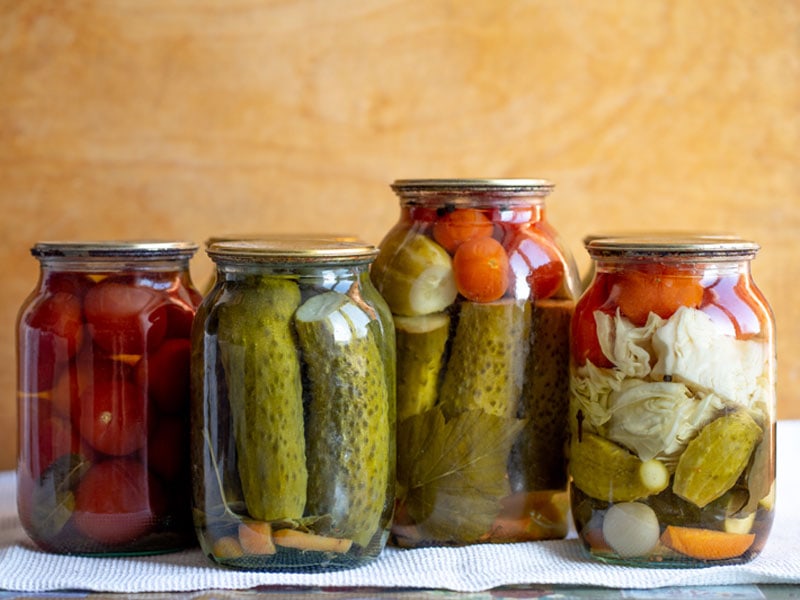
Basic Understanding About Pickles
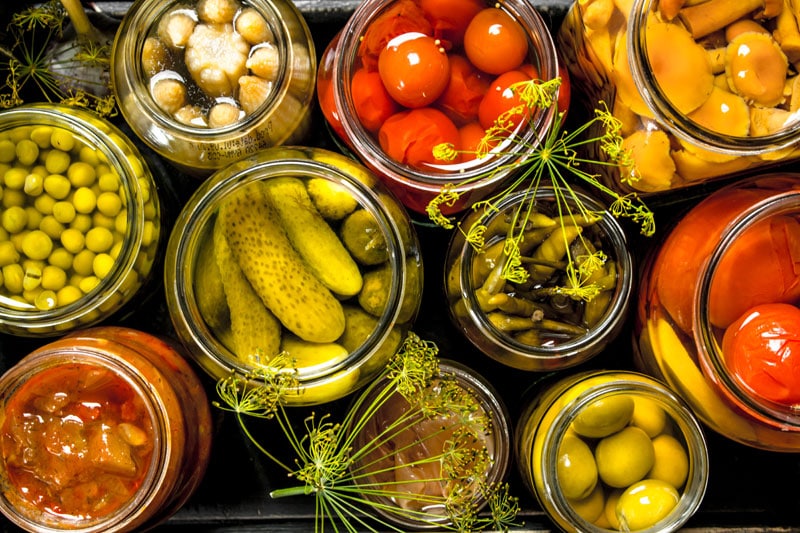
No matter if you are Asian, American, or European, you cannot fail to recognize one of the world’s most simple yet amazing and popular recipes, which are pickles. Processing foods in the way of pickling has been a common practice in many cultures all around the world since ancient times.
Regardless of being mass-produced in factories or made in household batches by hand, pickles are actually created with a very simple process that boils down to soaking the ingredients in a solution of vinegar, brine, and spices of choice in some cases.
The point of that process is to keep the harmful bacteria and fungus spores at bay since the solution with a high concentration of salt or sugar of pickles tend to retard their growth. Many people may mistake pickles and cucumber because of their characteristics.
Pickles may come with all kinds of ingredients as long as they are veggies, ranging from cucumber, radish, beets, green beans, jalapeno. If you are a fan of DIY cuisine, you can always be creative with ingredient choices.
Other kinds of fruits such as grapes, melon, cherries work too. But after all, pickled cucumber is still the most widely adopted dish all around the world.
Ways Of Pickling
The choice of pickling method contributes greatly to the shelf life of pickles. Since different cultures have their own unique ways of dealing with the same kind of food, there are also countless variations of pickling methods. Still, they all come down to these 4 general ways:
1. Salt-brine Pickles
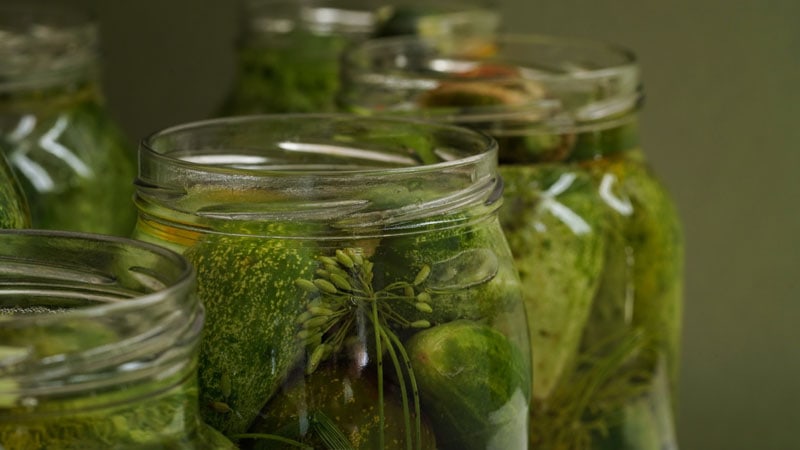
Dehydration may be harmful to our body, but it’s not the case with cucumbers or zucchini when it comes to pickling. Salty brine will help suck the water in vegetable’s cells out and enable pickling liquid to infiltrate them better. That will give the vegetables more crunchiness, better texture, and lengthened shelf life.
With this recipe, the vegetables will stay still in the salty water for plenty of hours to a day before being rinsed thoroughly to get rid of all the excess salt. After that, stuff them nicely into a canning jar, then pour the vinegar pickling liquid over them and seal the jar.
Thanks to the saltiness and high acidic conditions, salt-brine pickles have longer shelf life than quick pickles, but they should be kept in the refrigerator after first use to retain their crunchiness and texture.
2. Quick Pickles
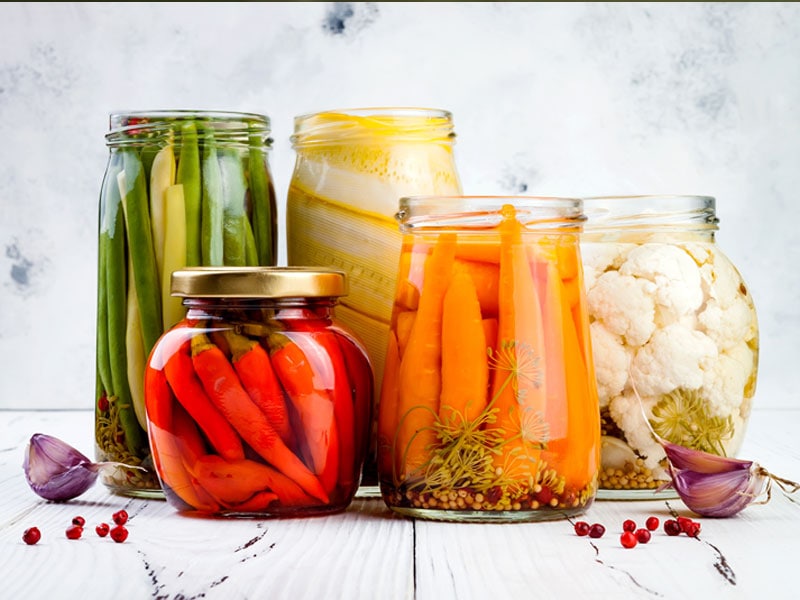
If pickles had the People’s choice award for favorite pickling methods, this method would win all the prizes since it’s the simplest yet tasty homemade method. Quick pickles are usually made in small batches at home due to its easy-and-quick-to-do nature.
Quick pickles are also called ‘fresh pickles’ from the way you make them. Cucumbers or any kinds of veggies are put into a canning jar and then get soaked in a preheated pickling solution of vinegar and water, skipping the process of fermentation. Spices, herbs, salt, and sugar are great additional flavors.
This method of pickling is also called “refrigerator pickles” because it is best to be stored in the refrigerator and should be consumed shortly after three or four months since it lacks the acidic environment and salty brine to harness harmful microorganisms.
3. Fermented Pickles:
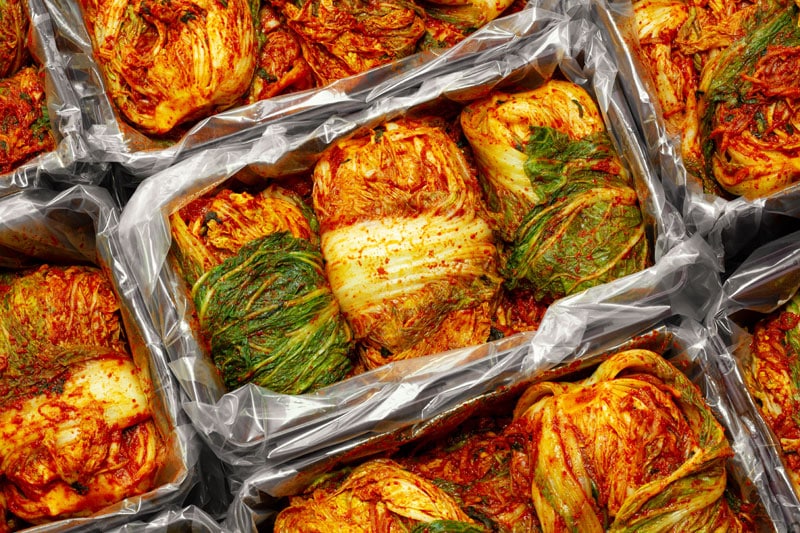
The key of the fermented method is ‘little airborne colonizers’ which means microbes that feed on sugar from the pickling solution and produce lactic acid to form a suitable environment to preserve the pickles naturally.
All you have to do is to immerse your vegetables in salt-water brine and keep them at normal room temperature for a few days and let the fermentation take its course.
Fermented pickles come with more unique and yeasty flavors than their counterparts.
4. Vinegar-brine Pickles
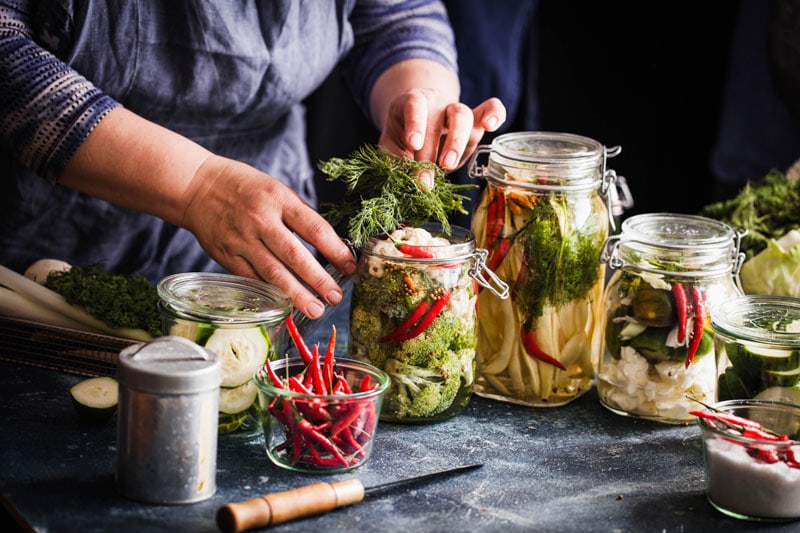
Vinegar-brine pickling method has the same principle as salt-brine method, which aims to draw the water in the vegetable’s cells out to let the pickling liquid, in which case is vinegar liquid, permeate the vegetables to give them more pervasive flavor and better texture.
Unlike in the salt-brine pickling method, vegetables in vinegar-brine pickles are required to be soaked and drained multiple times before getting doused in the pickling liquid, which includes vinegar as the main component mixed with the salty brine and other spices to diversify the flavor.
Learn how to make safe and healthy pickles from scratch!
Is Refrigeration A Must For Pickles?
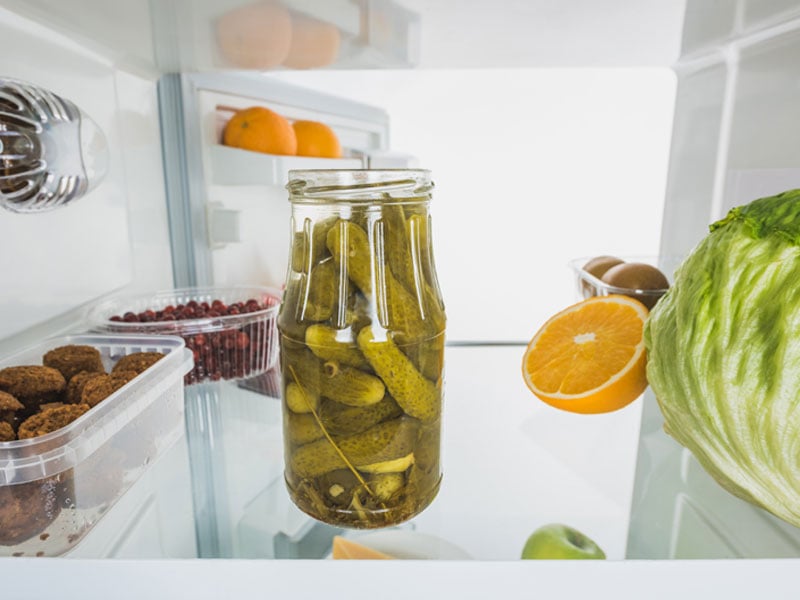
You have come pretty far on the path of insight about pickles, but you may still be wondering if you should refrigerate them. To fridge or not to fridge, it’s a question that raised a lot of disagreement among consumers and even among experts.
As a matter of fact, some factors dictate where you should store them, such as types of pickles, pasteurized condition, room temperature, and time of consumption.
Most of the time, if you pick up a jar of pickles in a supermarket, it has already been pasteurized in the canning process, which means all the bacteria were killed off, and you can keep them outside of the refrigerator, away from sunlight and other heat sources.
Once you open the jar, you must transfer them to your fridge after every use since mold and bacteria can colonize your pickles.
Should You Refrigerate Fermented Pickles?
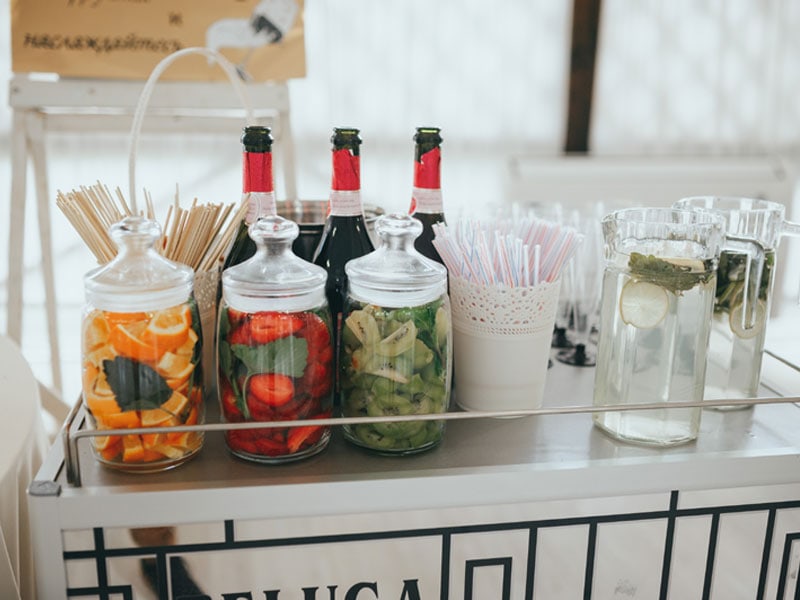
With unpasteurized ones, which can be found in a tray or a jar, inside a refrigerator, and without packages, you have to put them in your fridge as soon as you get home.
Unpasteurized means that the process of fermentation is still going on, putting them in the fridge helps slow down the fermentation and keep it from turning sour.
Another tip for storing pickles bought from the stores is you should keep the jar of pickles in the fridge if you find them in a fridge at the supermarket, regardless of whether it has a package. The professional did not put it there for no reason, didn’t they?
Don’t forget to read the instructions on the package to know the correct way to store a product. If it doesn’t mention the storage method, it’s best to keep them in the fridge to save yourself from all further headaches.
Have a better understanding of the difference between pickling and fermenting to know how to store them properly.
Should You Refrigerate Homemade Pickles?
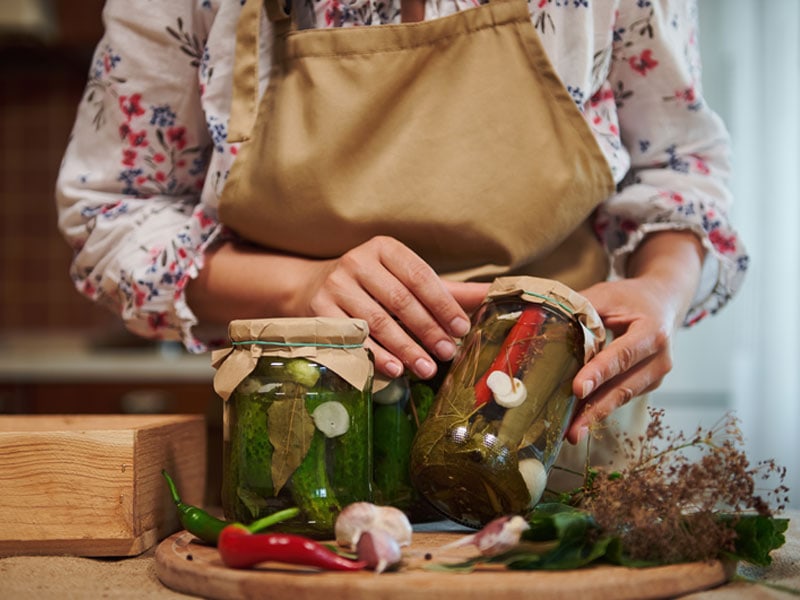
Homemade pickles follow the same rules. When they are still firmly concealed, you can store them in dark and cool places, but after the first use, you should store them in a fridge.
Cool temperature will also help preserve your pickles’ original crunchiness and flavors.
Roll up your sleeves and make yourself a jar of quick pickles with the guide of this video!
Should You Refrigerate Quick Pickles?
Quick pickles must always be refrigerated since they are not preserved as well as other pickling methods. Their shelf life is short too, so it’s better to make them in smaller batches and consume them as soon as possible.
Quick pickles should always be stored in the fridge right after you finish making them because they lack the saltines and acid required to preserve themselves.
The Benefits of Refrigerating Pickles
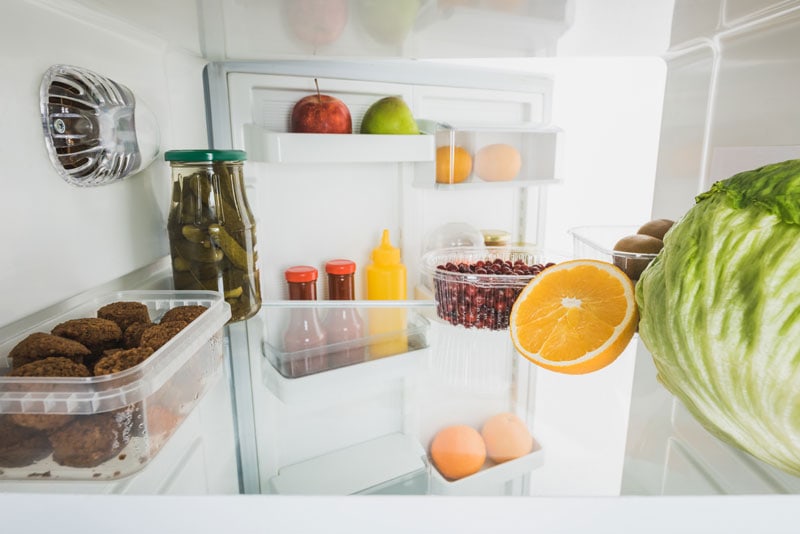
You may be reluctant to store pickles in the fridge because it is said that storing food too long in the fridge will lead to the loss of essential nutrients, flavors and texture. However, pickles are not the same as normal leftovers.
Pickles are submerged in their salt and vinegar brine which is a great food preserving solution itself. Storing pickles in the fridge actually brings more benefits than harm.
Cool temperature in the fridge not only keeps your pickles unspoiled but also retains their freshness, texture, and satisfying crunch. Your fridge is your greatest ally when it comes to storing pickles.
Time to learn some more tricks to preserve your pickles better!
Why Do Your Pickles Don’t Go Bad Without Refrigeration?
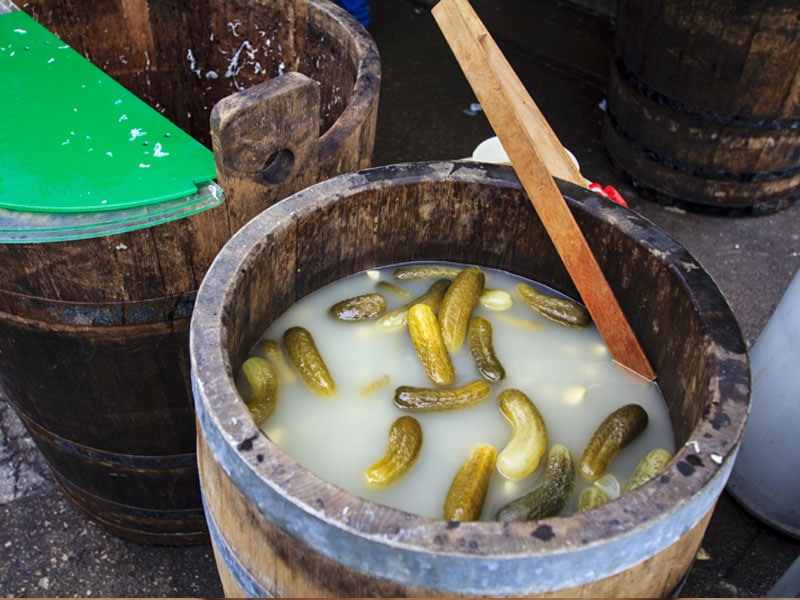
At this point, you may recall that you have had pickles kept at room temperature for months without spoilage before. Here are some explanations:
Spoilage happens, with or without refrigeration. A refrigerator and a lid limit the number of microorganisms trying to turn your tasty pickles into their colonization. And that’s that. The cold temperature and cover just make them grow slower.
After their successful landing, bacteria and fungus spores from the outer environment need nourishment to survive and breed. Their ideal environment must not contain too many chemicals that prevent their growth and not many other opposing colonizers.
Therefore, a solution with high concentration of salt and sugar, like pickling liquid cripples their growth. Acidic environment created by vinegar is also a nuisance to their growth. Moreover, naturally fermented pickles are inhibited by probiotics which are good bacteria that harness bad bacteria’s growth.
Your pickles are naturally preserved in hygroscopic brine, so it’s not surprising if they can go without refrigeration for months.
How to preserve your pickles if you prefer traditional ways? Here’s what you need to know.
Optimal Conditions For Non-refrigerated Pickles?
The optimal temperature for non-refrigerated pickles should not exceed 15 degree Celsius. The storage space should be closed and away from direct sunlight.
Humidity should not be ignored too. The ideal humidity for storing pickles around is 89-90%.
How To Store Pickles Properly?
Storage conditions of pickles such as container and space are important factors to keep the pickles live long and prosper! Here are some advice to improve the storage conditions of your pickles:
1. Using Jars
Choose clear glass jars to see through the contents inside. Jar is the easiest yet most effective choice to keep your pickles safe and thrive naturally. Just make sure your jars are tightly closed after opening.
You should store opened pickles in 1-2 liter jars because jars bigger than that may contain a lot of air, which is detrimental to your pickle’s preservation.
Jars also fit well into your fridge, they are among the best containers out there.
2. Using Barrels
Barrels may sound a bit too old school for you. In fact, that’s the oldest method for storing pickles.
You can’t put barrels in the fridge (yes, you can if you have a huge fridge back at home, but that’s not the point of pickles in barrels), so you have to keep them in closed space, with as little sunlight as possible.
The suitable temperature for pickles in barrels is around 0-celsius degrees.
Pickles in barrels have a shelf life of around 1 month since the fermentation process continuously occurs. If left outside for too long, pickles will begin to turn sour and soft if left outside too long.
3. Freezing Pickles
You can freeze your pickles, and some people do that, but it’s not necessary and counterproductive. Unless you prepare for an apocalypse scenario, I don’t recommend doing that since pickles are already in good preservation.
Any measure further than refrigerating them does not yield any better result. Freezing them can reduce their quality and their nutrient contents.
But in case you want to keep your pickles frozen, make sure you follow these procedures:
- Take your pickles out of the brine;
- Dry them and put them in zip bags;
- Put them in the quick freeze compartment before transferring them to the freezer.
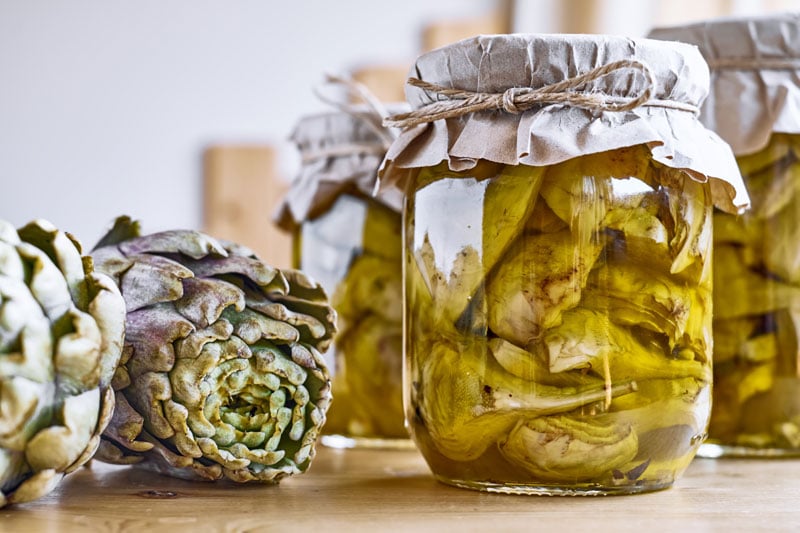
Recommended Consumption Time For Pickles?
Generally, pickling is originally invented to extend the consumption time of foods, so pickles’ natural shelf life is quite long.
For commercial products, pickles can last up to 1-2 years at room temperature, but be mindful of the expiration date!
Fermented pickles are more tricky. You can choose to refrigerate them, but it is not compulsory. Yes, the fermentation process will continue if left outside the fridge.
The ingredients will get sourer as time goes by, but it is not necessarily a bad thing. Some people may enjoy that taste more than others.
A specific human-friendly bacteria called lactobacillus is produced in the process of fermentation. Those happy little friends promote your gut health, hence your general immune system. (1)
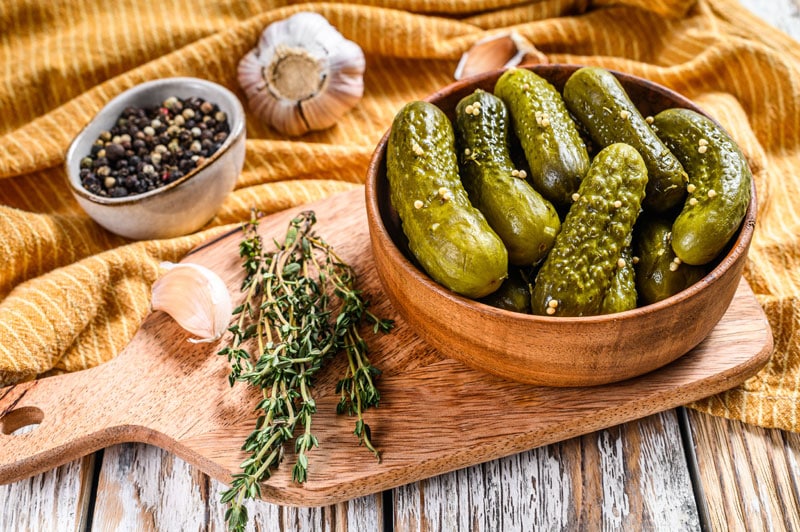
Signs Of Pickles Going Bad
Pickles may be one of the most resilient foods out there in terms of shelf life. They can stay fresh and healthy for one or two years.
But is it possible for pickles to go bad? Yes, but the chances are small. They DO go bad after a long time without proper storage.
But if you have not finished your jar of pickles after 2 years, chances are you don’t like them anyway. In that case, you should get rid of them because there is no point in risking your health over something you don’t like.
Like every other food, it’s not hard to tell if your pickles have gone bad. Your common sense can tell you immediately after opening the jar. Here are some obvious signs that your pickles are not their human-friendly selves anymore:
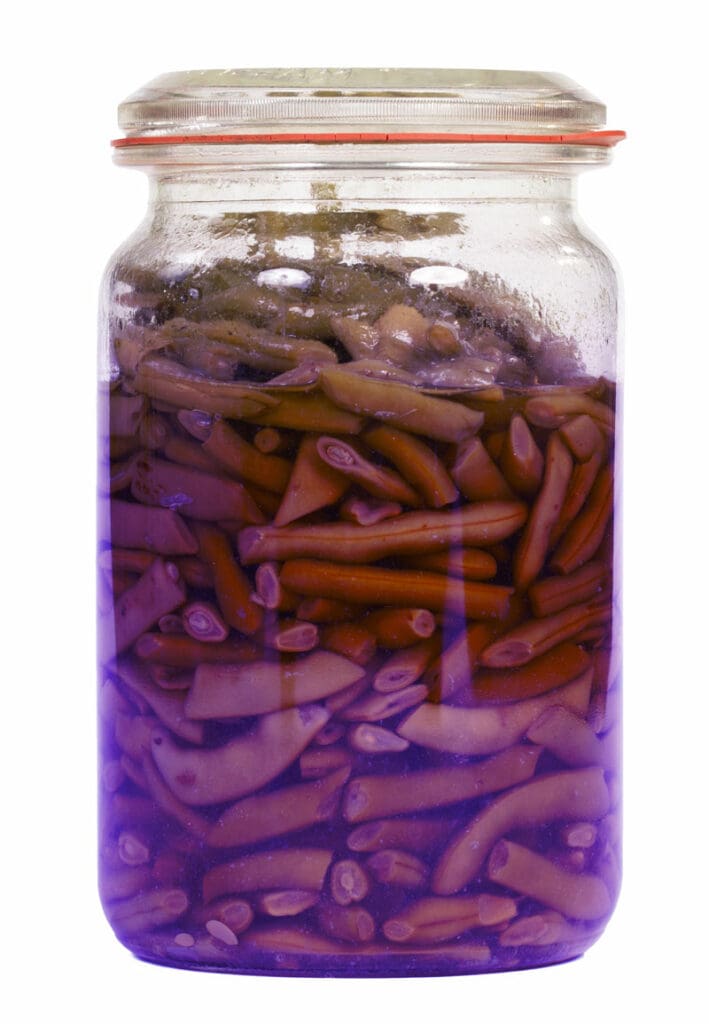
1. The Bad Smell
If a sour and unpleasant smell stings your nostrils upon opening the jar lid, your pickles are already in bad shape. Throw them away, don’t risk it!
2. The Unusual Color
Any suspicious change of color in texture is a sign of over-activity of bacteria and fungus or chemical change in your pickles jar. If the brine turns cloudy, murky, or brown, you should check the content inside.
If your pickles are soft and discolored, it’s a clear sign that they are not safe to eat anymore.
That’s why it is important to store your pickles in a glass jar, to see how that little world inside the jar is turning out.
3. Bulging Lid
If the lid appears to be deformed, in which case it is bulging out, you should know there are gasses inside the jar. If you are sure that no one in the house shook the jar up, then the only viable answer is that fermentation has gone out of control.
In some cases, the pressure generated by the acid in the pickles can turn your pickles jar into a tiny bomb. Yes, it will burst if the jar is not strong enough to hold it.
If you see pickle jars with bulging lids at the store, don’t buy them. There has to be some malmanufaturing that made the content go bad before opening.
4. Mold
That’s too late! You never want to know what your pickles have gone through to have those disgusting mold floating on the surface. It’s up to you to relieve them from suffering.
This is more common in fermented pickles since you let the microbes do the pickling job. It turned out bad bacteria were more hard-working, and they built a megapolis (mold) there when you didn’t notice.
5. Change In Taste
You choose to ignore all the alarming signs above and eventually take out a pickle for your sandwich. You take the first bite and find the taste is not what it used to be, whether it’s bitter or tasteless, you know it’s time to pause and ponder about the condition of your pickles.
Well-preserved pickles will not have much change in taste besides the crunch.
6. Expiration Date
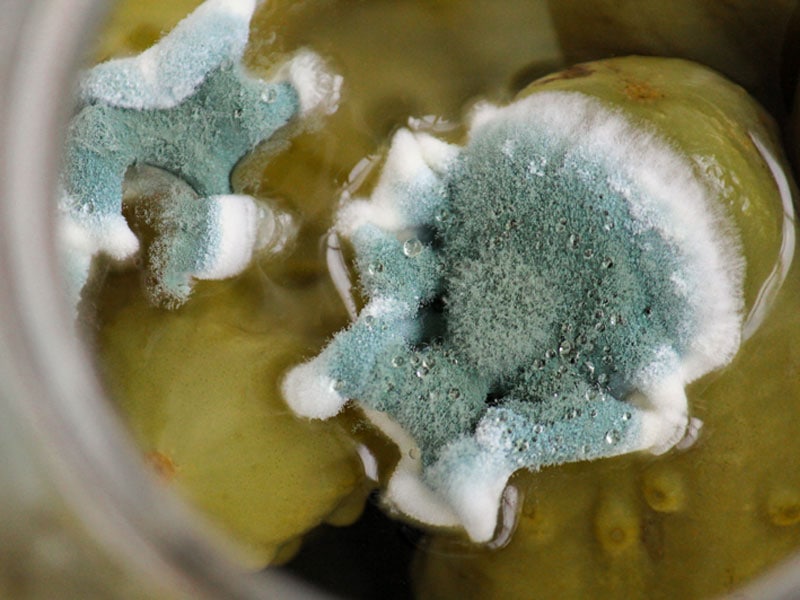
It is a simple rule for all customers: Don’t buy anything that is over its expiration date, even if you don’t see anything wrong with the product itself. Especially when it comes to food, expired pickles will only do you more harm than good.
The expiration date is the manufacturer has done all the math for you, better to follow their instruction. Don’t blind-pick a random jar of pickles on the shelf. Instead, check the expiration date for your own sake.
Health Effects
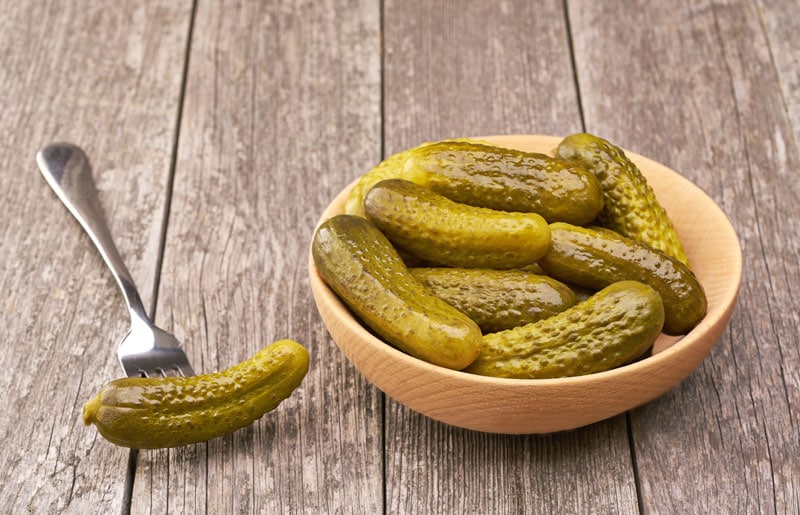
According to research, consuming fermented foods at a reasonable amount can yield a lot of benefits for your health, such as improving natural inflammation resistance and stepping up your antioxidant intake. (2)
Pickles from local stores or markets are truly the savior of people who are too busy climbing their greasy poles. Pickles can partly provide you with vital vitamins and fiber that you’re deprived of from consuming fast food all day long.
On the other hand, you should be mindful about eating too many pickled foods because excessive amounts of sodium from those harmless-looking greenies can turn against you by pumping up your blood pressure.
Here are some FAQs for your information:
FAQs
Don’t miss out on these informative FAQs sections for the sake of keeping your pickles fresh and healthy!
Bonus Tips For Storing Pickles
In order to extend the shelf life of pickles, you should always make sure your container is clean and sterilized. You can do so by washing the container thoroughly with boiled water or dipping it into boiling water for a few minutes.
Avoid using metal lids and spoons because the pickling liquid contains vinegar that can cause corrosion and affect the flavor of your pickles.
Good thing about pickles is that you don’t have to worry too much about preserving them. The basic understanding in this article is enough for you to keep your pickles fresh and healthy all the time!
References
- Are Pickles Good for You? (2022).
- Are There Health Benefits to Eating Pickles? (2020).


